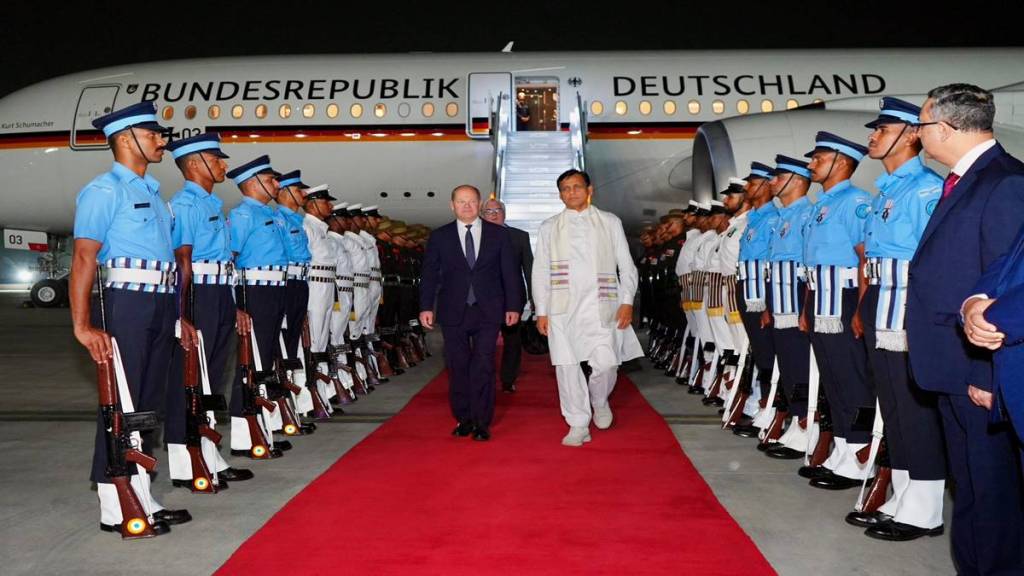As the 18th Asia-Pacific Conference of the German Economy (APK) unfolds in New Delhi, the spotlight is on Germany and India’s strategic and economic partnership. The conference, which gathers leaders from politics and business across the Asia-Pacific region, serves as a platform for both nations to explore new avenues of cooperation, with a strong focus on trade. One of the key topics is the ongoing negotiations surrounding the EU-India Free Trade Agreement (FTA), which have faced significant challenges.
Germany’s Vice Chancellor and Federal Minister for Economic Affairs and Climate Protection, Robert Habeck, addressed the complexity of the FTA negotiations during his remarks at a press conference in New Delhi late Thursday evening (Oct 24, 2024).
He identified agriculture as the most significant hurdle in reaching an agreement, pointing out the vast differences between the agricultural systems of Germany and India. “In Germany, for example, only 2% of people work in agriculture, while in India, it’s around 60%, and in some regions, as high as 80%,” Habeck noted, emphasizing that opening markets fully under a free trade agreement would be highly disruptive to India’s agricultural economy.
EU-India FTA: Struggles and Progress
Habeck acknowledged that finding a balance in negotiations is crucial, particularly when considering the impact on India’s rural economy. He explained that while free trade agreements (FTAs) typically require comprehensive market access, the realities of India’s agricultural sector necessitate a more cautious approach. “If we were to fully open markets, the destruction of India’s agricultural markets would be enormous,” he said, highlighting the sensitivity of the issue.
Despite these challenges, Habeck remains optimistic about the potential to reach an agreement, even if progress comes in smaller steps. “Perhaps we can find a solution that diverges from what the European Union has traditionally done over the past 20 years,” he suggested, signalling a willingness to adapt the usual approach to FTA negotiations.
While there have been rumours of nearing the end of negotiations, Habeck was cautious in his assessment. “These rumours have surfaced before, even 10 years ago,” he remarked, alluding to the long and complex history of the talks. However, he stressed the importance of focusing on industrial markets in the immediate term as a practical way to move forward. “It’s better to take the steps, even if they are small, rather than standing still and not moving forward,” Habeck emphasized, advocating for incremental progress in the negotiations.
Shifting Geopolitical Dynamics: Defence and Trade
Habeck’s comments on the EU-India FTA were part of a broader discussion on Germany’s evolving economic and strategic relationship with India. One notable area of change is Germany’s stance on defence exports to India. Historically reliant on Russian military supplies, India is now seeking to reduce its dependency on Moscow, opening the door for greater German involvement in India’s defence sector.
“India no longer wants to source all its military goods from Russia,” Habeck stated as a reply to a question of German defence exports to India, reflecting Germany’s readiness to support India’s defence needs. Although defence exports are a separate issue from broader trade relations, they are indirectly connected to the strategic partnership between the two nations. Habeck pointed out, “Since India does not live in a completely peaceful region, it needs weapons for self-defense, including submarines. And if we don’t want Russia to be the only supplier and for this dependency to grow even larger or for the relationship between the two to be continuously strengthened, then action must be taken accordingly.”
Indo-German Cooperation at APK 2024
The APK 2024 provides a critical platform for Germany and India to strengthen their ties amid a rapidly changing global economic landscape. The Indo-Pacific region, according to Habeck, is “the most dynamic economic area in the world,” offering immense opportunities for German businesses to contribute to shaping the global economy of tomorrow. With the region at the center of global value chains, Germany is keen to expand its partnerships in areas such as technology, digital transformation, and sustainable development.
The Asia-Pacific region, including India, is becoming increasingly important for Germany’s trade strategy. As the EU continues to negotiate trade agreements with key players in the region, including India, Japan, and Australia, the potential for further economic integration remains high. The participation of key figures like Indian Prime Minister Narendra Modi and German Chancellor Olaf Scholz at APK 2024 underscores the importance of this conference in fostering deeper Indo-German cooperation.


